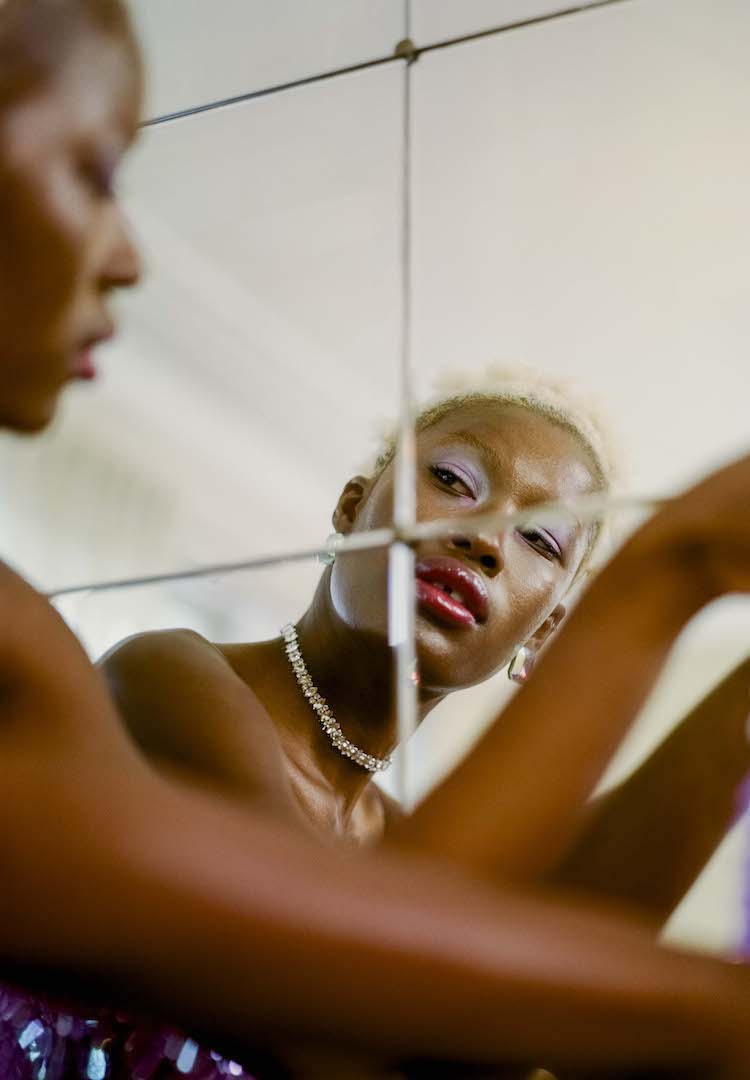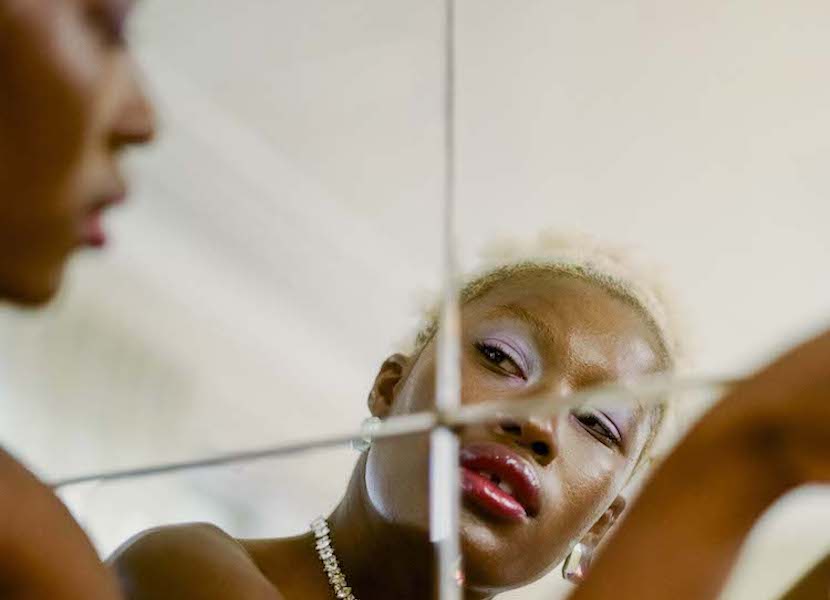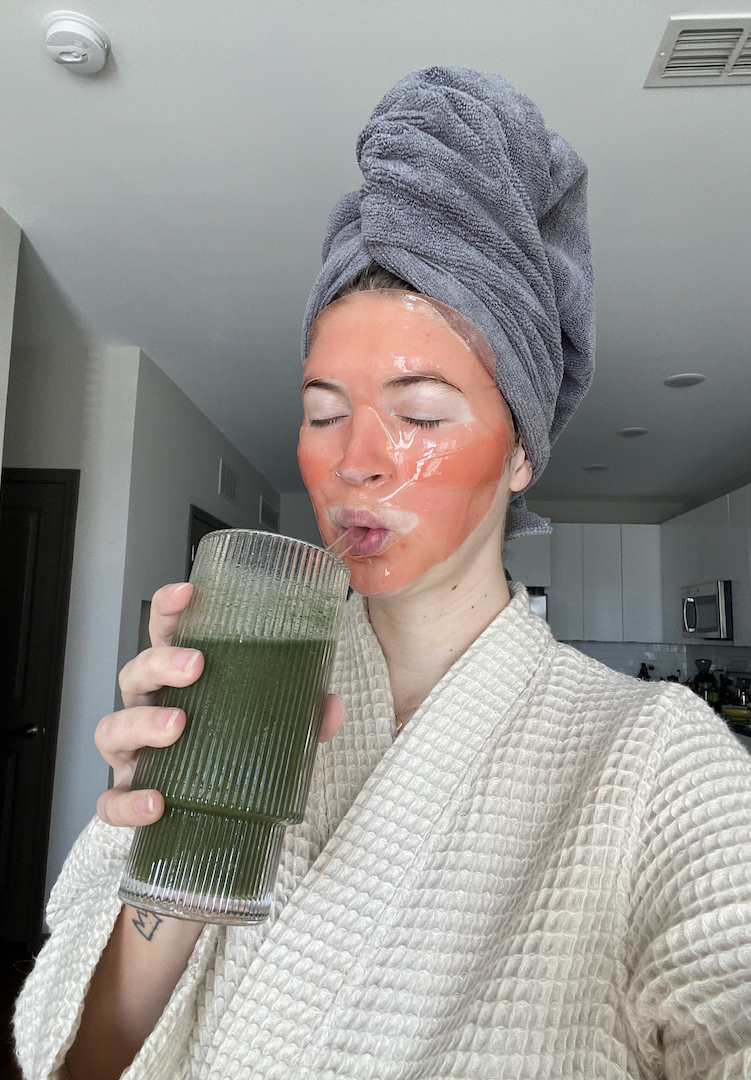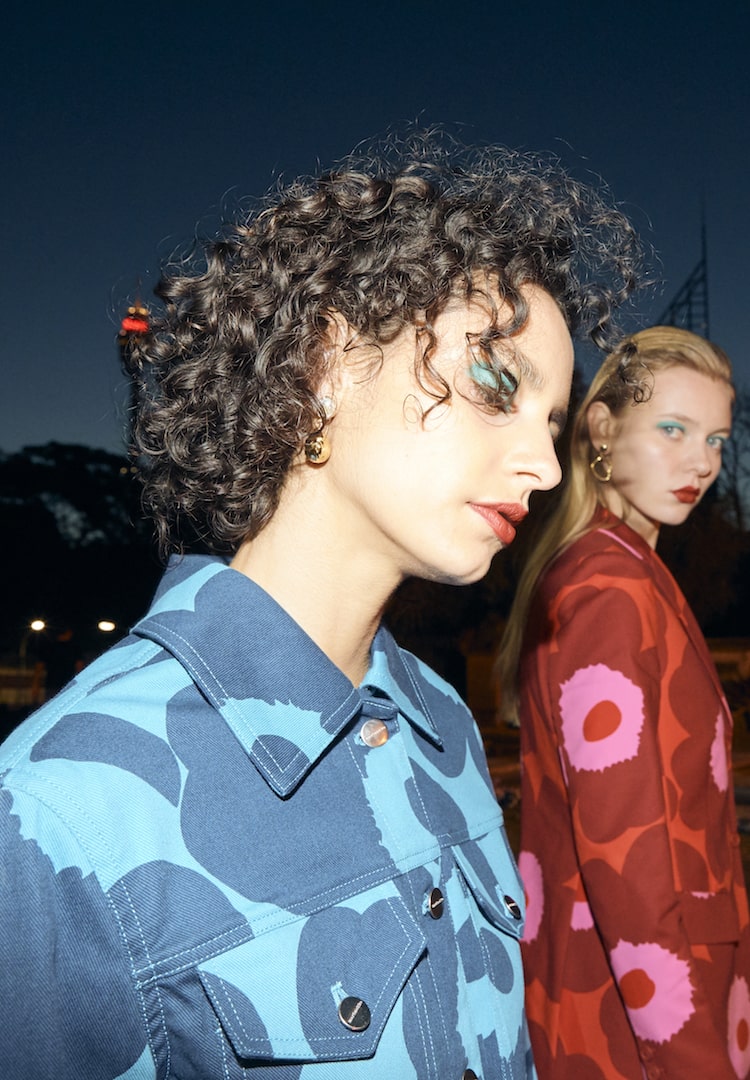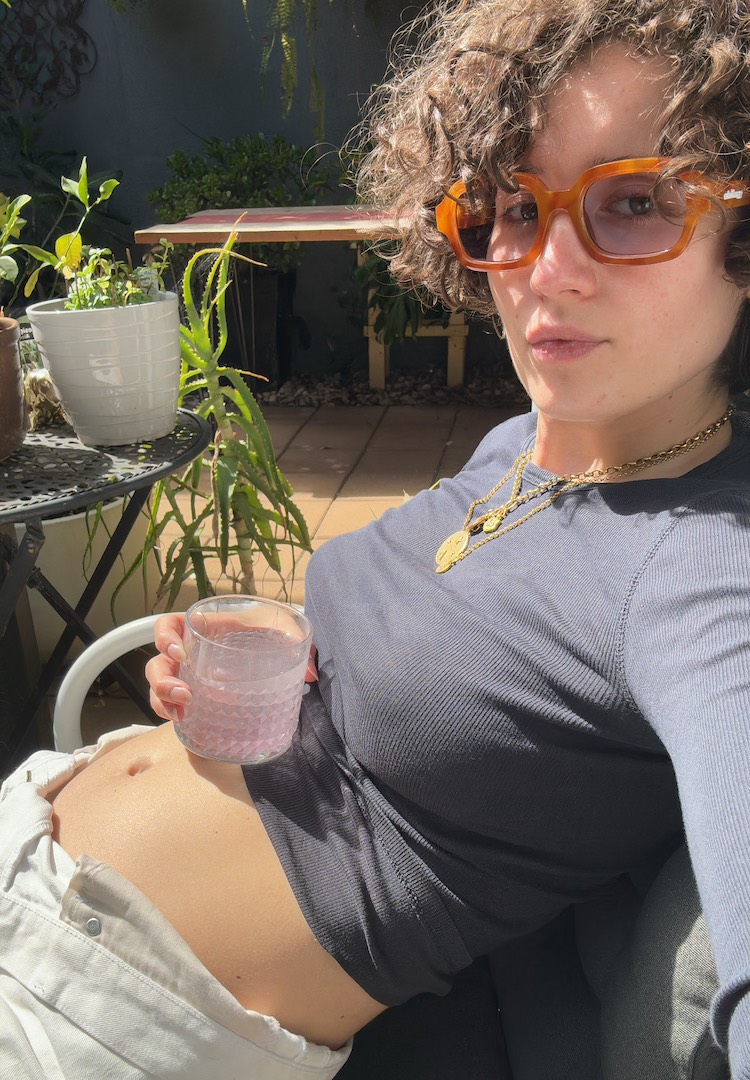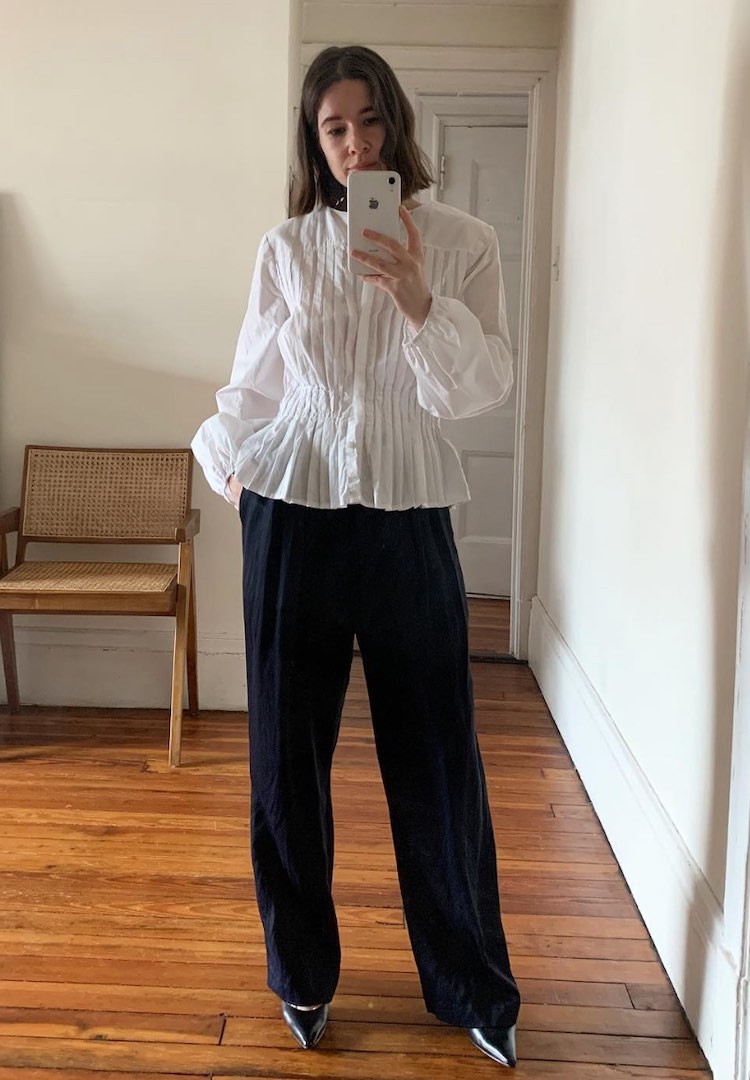How TikTok’s algorithm showed me I have low self-worth
PHOTOGRAPHY BY NATASHA KILLEEN
WORDS BY Emma Whines
My ‘For You Page’ showed me a side of myself I didn’t like.
In the midst of the pandemic chaos of 2020, I found myself spending the majority of my time alone. My roommate had left Queensland to live out the lockdown with her family in Northern NSW, my uni classes had been moved to a purely online basis and my usual socialising antics of meeting friends in bars, cafes, clubs and restaurants was obviously no longer a reality.
Like most people, I turned to the only other source that I believed was viable to connect with people: my phone. I fell into spending copious amounts of time on social media apps, trying to recreate that same connection that I took for granted before and also fill the moments where the sneaky existential dread really started to hit home.
To read more personal accounts and experiences likes this, head to our Life category.
One app that ate up most of my time was TikTok, a nauseatingly addictive app that’s filled with bite-sized videos ranging in length from 15-60 seconds. The content is varied and was originally compared to Vine, a social media platform where small skits under six seconds were uploaded, but TikTok has now expanded into a plethora of different sub-genres where users can find their niche or ‘tribe’.
While you can follow people and engage in a feed filled with their content, the ‘For You Page’ (FYP) is where most TikTok users spend their time and it’s also a feature that sets it apart from many other social media apps. In the FYP, the algorithm spits out content and when you engage by a like, a follow or even by watching a video multiple times, it will filter more content similar to that into your FYP.
What you end up with is a snappy, addictive social media feed and a smorgasbord of content showcasing all of your unique interests and hobbies. No FYP is exactly the same and in some ways, I realised the TikTok algorithm is like staring into a mirror that showcases a fraction of your personality and your mental state. Now, very much out of quarantine and doing my best to adjust to the new norm in the Sunshine State, I no longer feel a disconnect from friends and family and am able to socialise freely, which should indicate that my social media engagement has gone back down to its pre-COVID level, however, that is not the case. I still find myself as addicted as ever.
I’ve been through many different TikTok algorithm-based binges relating to books, movies, aesthetics and even filters. The more it changed, the more I noticed how in tune it was with me and where my current interests and ideals lied. I initially believed that if someone wanted an elevator pitch on me as a person, they would just have to watch my TikTok FYP for an hour and they would get a basic rundown of what I like, what I find funny and my political views. When the thought first came to me, I dismissed it. An app originally targeted towards children, no less, is not some psychological tool that acts as a movie trailer for a person, but the more I watched it the more I realised there was at least some truth to the idea.
The algorithm was like a new friend, learning what I liked, what I didn’t like, and what would make me stay on the app for longer. In realising this, I started to pay even closer attention to how the algorithm described me. It carried the same energy as a horoscope, allowing me a glimpse into who I truly was. But I quickly noticed a pattern. Amongst the comedic geniuses and the wannabe models, I was receiving hundreds of videos based around food, weight, exercise and self-worth.
People explaining how to budge belly fat, tips on how to consume fewer calories, young girls boasting about eating one meal in a day. Not all of it was so dismal. There were a multitude of trends about women showcasing a sense of comfort and liberation in their body or trying to normalise healthy flexible eating patterns and ‘normal’ bodies. No matter how seemingly positive the posts were, I was concerned by how many centred around body image and the associated pressures that come from living in a society that places a high premium on attractiveness.
Was I unaware of how much my mind subconsciously wanted to be perceived as ‘attractive’? I had always thought I was very comfortable in my skin (as comfortable as a 22-year-old can be) but if my theory is correct – that the TikTok FYP is an extension of the user’s mind and personality – then maybe this is proof that my self-worth is not what I thought it was. Social media is known for its destructive effects on self-esteem and body image and generally, the advice is to follow people and curate your feed to garner a more positive experience.
Each user’s Tiktok FYP is not something that can be manually curated or controlled unless you are exclusively using the feed that showcases content from people you follow. Many of my friends use Tiktok and none of them uses that feed. Interestingly enough, the idea that we cannot control TikTok (or at least control it minimally) is exactly what makes it so popular. The likelihood of getting bored of an app where fresh content is constantly spat out from new creators, at no effort from the consumer, each video funnier, sexier or more damaging than the last, is slim.
And isn’t that the premise of social media? To fill the space in between the important stuff? Or has it become the important stuff, while the rest of our life – family, friends, work and health – have become the in-between moments. Understanding this idea then makes Tiktok simultaneously more addictive and less manageable. It’s working off a user’s subconscious likes and dislikes, which have the ability to be detrimental rather than the likes and dislikes of a controlled and informed mind. This feeling was exacerbated a couple of weeks later when I went to a friend’s house and we sat around drinking wine and watching Tik Tok on a lazy Friday night.
We huddled together watching her FYP first and I was surprised by how different it was. There were similarities to mine of course, but obviously, she favoured performative pieces with more comedic flair. Objectively, her feed was much more interesting and more fun than mine, and I found myself laughing a lot more and felt less bogged down by that sense of self-hatred I often found myself walking away from social media with. She wanted to see my feed, so I opened my app and we sat there watching and scrolling through for a couple of minutes. At first, still carried by the humour we experienced through her FYP, we sat smiling, grinning and laughing at things that were only remotely funny.
Eventually, the reality set in and I found myself having to quickly scroll past a multitude of videos as they were all based around food, weight, exercise and low self-worth. The mood became bleak and I saw my friend give me a weird look before saying: “Your TikTok sucks dude. The algorithm is obviously not on your side.” We brushed it off and returned to her phone, scrolling and laughing once again and continuing on with a fun night. I, however, couldn’t get the idea out of my head that the algorithm wasn’t fucked up, but maybe I was.
I have since deleted TikTok and then re-downloaded it. And then deleted it again. And then re-downloaded it again. What I’m trying to convey is that this article is not a trash piece on TikTok. Ultimately, it is a company who has created an app that is enjoyable to a lot of people, including me. In fact, there is a part of me that thanks TikTok as its algorithm helped highlight an ongoing underlying issue for me. Did TikTok help exacerbate that issue and create an environment where I was constantly seeing girls trying to reach an unattainable beauty status, which in turn made me feel like I should be doing the same? Yes. Do I blame TikTok? No.
What we must remember as consumers is that it is our responsibility to recognise when technology and social media is affecting our real life. We cannot blame an app for reading the patterns of our mind, even if we don’t realise that we’re the ones to blame. TikTok is not the only app where the algorithm is not controlled by curation but rather subconscious action, but it is probably the most prominent thanks to its FYP feature. In an age where everything is becoming more streamlined and based less and less on conscious action, taking responsibility by controlling and monitoring our own use is essential.
If your mental health is in check, your FYP has a better chance of producing content that will only enhance that through connection, relatability and humour. The opposite applies if you’re suffering. In that scenario, your FYP might magnify that suffering. Ultimately, it’s our responsibility to know which state we’re in, and to take a step back to figure out whether our actions on social media, specifically TikTok, are perpetuating that.
If you or someone you know is struggling with their mental health, you can contact Lifeline on 13 11 14.


